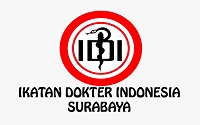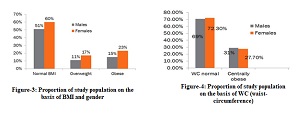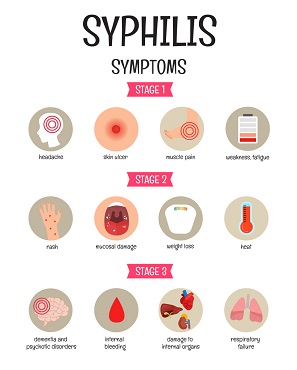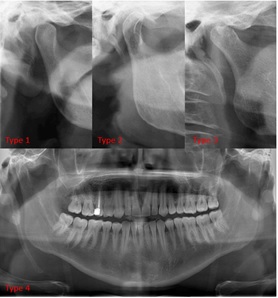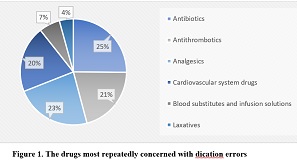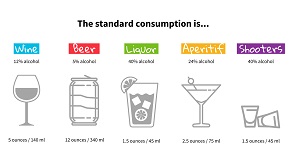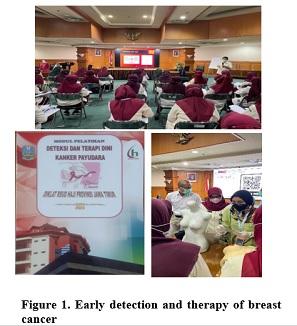Retention of Cardiorespiratory Anatomy Knowledge Among Universitas Ailangga Medical Students With History of COVID-19
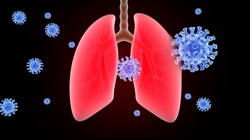
Cardiorespiratory anatomy is fundamental knowledge for doctors. However, knowledge retention in medical students decreases over time. Retention is a reflection of memory ability and is affected by many factors, such as COVID-19 infection. COVID-19 is a disease caused by Sars-CoV-2 and has been declared as a pandemic since March 11th 2020. During the pandemic, cardiorespiratory anatomy tests were held in the 1st semester and 4th semester. The objective of this research was to measure the retention difference between students who had suffered from COVID-19 in that period and the ones without a history of COVID-19. This research was a cross-sectional descriptive analytics observational study involving 59 medical students at Universitas Airlangga, Indonesia. It was known that 19 students had suffered from COVID-19, while the other 40 had not. The average score of overall students experienced a significant decrease from 1st semester to 4th semester (p=0.000), both for students who had (p=0.023) and had not suffered from COVID-19 (p=0.001). However, the 1st semester and 4th semester cardiorespiratory anatomy scores of students with a history of COVID-19 were lower than students without a history of COVID-19. Besides scores, the cardiorespiratory anatomy knowledge retention of students who had suffered from COVID-19 (M=86.72%) was also lower than students who had not (M=86.95%). Nevertheless, the retention difference between those two groups of students was not significant (p=0.703).
INTRODUCTION
Anatomy is a mandatory course for a doctor because it is the basis of medical science, which includes the structure and function of the human body11. Understanding cardiorespiratory anatomy is very important for healthcare professionals considering the high prevalence of cardiovascular and respiratory diseases in Indonesia, ranging from heart disease at 1.5%, asthma at 2.4%, hypertension at 8.4%, to stroke at 10. 9%2,323.
Knowledge retention describes an individual's ability to store knowledge in long-term memory, which will eventually be recalled. Long-term memory is consolidated from short-term memory and working memory. Memory abilities are included in cognitive functions along with perception, attention, decision-making, and language comprehension4,545.
The brain is the main organ for memory processing, especially the hippocampus and thalamus area. Lesions to the brain, whether due to trauma or disease, affect memory abilities66. Patients who have suffered from Coronavirus Disease 2019 (COVID-19) experience decreased cognitive function which is based on working memory dysfunction77. COVID-19 is caused by infection with the Sars-CoV-2 virus88. This virus mainly attacks lung epithelial cells, then causes inflammation and collapse of the lungs99. This will disrupt the oxygen diffusion, ventilation, and perfusion processes. Lack of oxygen in circulation will cause the brain to endure hypoxic encephalopathy and lead to tissue death1010.
COVID-19 was newly discovered at the end of 2019 and declared by WHO as a pandemic on March 11th2020. As of March 2nd2022, there had been 437 million confirmed cases and 5.9 million deaths due to this disease1111. This pandemic became the basis for the Ministry of Education, Culture, Research, and Technology, Republic of Indonesia to instruct the change in learning mode to online and then hybrid1212. The 1stsemester and 4thsemester cardiorespiratory anatomy tests in the Faculty of Medicine Universitas Airlangga, Indonesia were held during the COVID-19 pandemic. The cardiorespiratory test in 1stsemester was held online in January 2021, while in 4thsemester the test was held offline in March 2022. Based on that, this research was carried out to determine the frequency of students who had suffered from COVID-19 during this period and the differences in cardiorespiratory anatomy knowledge retention between this group of students and students who had never suffered from COVID-19.
MATERIALS AND METHODS
The ethical clearance number 168/EC/KEPK/FKUA/2023 for this study was obtained from the Faculty of Medicine of Universitas Airlangga's Ethical Committee on June 26th2023. This research was a descriptive-analytical observational study with a cross-sectional design. The population for this research was medical students of Universitas Airlangga, Surabaya, Indonesia, class of 2020. Questionnaires were used to collect respondents’ consent, identity, and history of suffering from COVID-19 before the cardiorespiratory anatomy test in 4thsemester. Data were retrieved from the Department of Anatomy, Histology, and Pharmacology to collect 1stsemester and 4thsemester cardiorespiratory anatomy scores of students who were willing to become research subjects. All students who were willing to be research subjects and had filled out the questionnaire completely were included in this study. However, students who had been assistant lecturers in anatomy courses, won anatomy competitions, and repeated courses were excluded. Data were processed into frequencies, distributions, and percentages using Microsoft Office Excel 2019, while statistical mean comparison and odds ratio tests between variables were tested using SPSS.
RESULTS
The research subjects were 59 students from a total population of 281 students. The students’ age range was 20-23 years old. The number of female students (69.5%) was greater than male students (30.5%). Based on the history of COVID-19, it was discovered that 19 of them (32.2%) had suffered from COVID-19 while the other 40 (67.8%) had no history of suffering from COVID-19.
Variables | Total (%) |
Populations | 281 |
Sample Size | 59 (100%) |
Age Distribution | 20-23 years old |
Sex | |
Female | 41 (69.5%) |
Male | 18 (30.5%) |
History of COVID-19 | |
Had been suffered from COVID-19 | 19 (32.2%) |
Had not suffered from COVID-19 | 40 (67.8%) |
The cardiorespiratory anatomy scores summary for 1stsemester showed that the overall average score was 44.07. Students with a history of COVID-19 had lower 1stsemester average scores (43.16) than overall students or those who had not suffered from COVID-19 (44.5). In 4thsemester, the average score decreased from 1stsemester score. This score decrease happened to overall students, both with or without a history of COVID-19. In the 4thsemester, the average scores for overall students, students with COVID-19 history, and students without COVID-19 history were 30.95, 29.88, and 31.45 respectively. After being processed using paired t-test, it was known that the difference between 1stand 4thsemester scores was a significant decrease in all three groups: overall students (p=0.000), students who had suffered from COVID-19 (p=0.023), and students without a history of COVID-19 (p=0.001). The percentage of students who had a score decrease was greater in the group of students with COVID-19 history (73.68%) compared to students without it (67.5%). Based on the odds ratio, students who had suffered COVID-19 were 1.34 times more at risk of score decrease compared to students without a history of COVID-19 (p=0.630).
Because there was a decreased score from 1stto 4thsemester, the percentage comparison between
Indonesian Medical Council. Peraturan KKI Tentang Standar Kompetensi Dokter Indonesia [Regulation of the Indonesian Medical Council on the Standards of Competence for Indonesian Doctors]. 2012. 1–90 p. Downloaded 25 December 2023 from : https://kki.go.id/uploads/media/1683689635_fa3dea59333025ae148a.pdf
Nugraha ZS, Khadafianto F, Fidianingsih I. Refleksi Pembelajaran Anatomi pada Mahasiswa Kedokteran Fase Ketiga melalui Applied and Clinical Question [Anatomy Learning Reflection in Third-Phase Students throught Applied and Clinical Questions]. Refleks Pembelajaran Inov. 2019;1(1):21–7. DOI: 10.20885/rpi.vol1.iss1.art3
Ministry of Health, Republic of Indonesia. Badan Penelitian dan Pengembangan Kesehatan. Riset Kesehatan Dasar (RISKESDAS) [ Basic Health Research]. 2018. Downloaded 29 April 2022 from : https://repository.badankebijakan.kemkes.go.id/id/eprint/3514/1/Laporan%20Riskesdas%202018%20Nasional.pdf
Baartman LKJ, De Bruijn E. Integrating knowledge, skills and attitudes: Conceptualising learning processes towards vocational competence. Educ Res Rev [Internet]. 2011;6(2):125–34. Available from: DOI : 10.1016/j.edurev.2011.03.001
Nouchi R, Kawashima R. Improving Cognitive Function from Children to Old Age: A Systematic Review of Recent Smart Ageing Intervention Studies. Adv Neurosci. 2014;2014:1–15. DOI : 10.1155/2014/235479
Guyton, Hall. Text Book of Medical Physiology. 2021;1013.
Tavares-Júnior JWL, de Souza ACC, Borges JWP, Oliveira DN, Siqueira-Neto JI, Sobreira-Neto MA, et al. COVID-19 associated cognitive impairment: A systematic review. Cortex. 2022;152:77–97. DOI : 10.1016/j.cortex.2022.04.006
Soedarsono S, Semedi BP, Setiawati R, Meliana RY, Kusmiati T, Permatasari A, et al. Case Report: Survival of A Coronavirus Disease-2019 (Covid-19) Patient with Acute Respiratory Distress Syndrome (ARDS) in Dr. Soetomo Hospital, Surabaya, Indonesia. Folia Medica Indones. 2021;56(3):235. DOI : 10.20473/fmi.v56i3.24584
Alipoor SD, Jamaati H, Tabarsi P, Mortaz E. Immunopathogenesis of pneumonia in covid-19. Tanaffos. 2020;19(2):79–82. https://www.ncbi.nlm.nih.gov/pmc/articles/PMC7680509/pdf/Tanaffos-19-79.pdf
Nitsure M, Sarangi B, Shankar GH, Reddy VS, Walimbe A, Sharma V, et al. Mechanisms of hypoxia in covid-19 patients: A pathophysiologic reflection. Indian J Crit Care Med. 2020;24(10):967–70. DOI: 10.5005/jp-journals-10071-23547
Budi DS, Oktavian P, Asmarawati TP, Lestari P, Ariviani F, Ihsanulhaj R, et al. Antiviral Treatment in COVID-19 Outpatients: A Systematic Review of Randomized Controlled Trials. Acta Med Indones. 2022;54(4):540–55. https://www.actamedindones.org/index.php/ijim/article/view/2136
Nugraha D, Melbiarta RR, Visuddho V, Rimbun R, Sakina S, Herawati L, et al. Hybrid learning as alternative approach to improve Indonesian medical students’ attitude towards clinical skills during COVID-19 pandemic. Korean J Med Educ. 2023;35(4):377–88. DOI: 10.3946/kjme.2023.274
Chakkarapani A, Liau M, Sheng P. Assessment Of Long-Term Retention Of Human Anatomy Knowledge And Skills Among Modern-Day Health Science Students. Int J Sci Technol Res [Internet]. 2021;10(06):153–7. Available from: www.ijstr.org https://www.ijstr.org/final-print/jun2021/Assessment-Of-Long-term-Retention-Of-Human-Anatomy-Knowledge-And-Skills-Among-Modern-day-Health-Science-Students.pdf
Saad R, Sampaio Favarato MH, Ferreira De Paiva E, Do Patrocinio Tenorio Nunes M. Medical Student Skill Retention after Cardiopulmonary Resuscitation Training: A Cross-Sectional Simulation Study. Simul Healthc. 2019;14(6):351–8. DOI: 10.1097/SIH.0000000000000383
Sufiyah IM, Semedi BP, Wiyasihati SI. Retention of basic life support in medical students of Airlangga University. J Kedokt dan Kesehat Indones. 2018;9(2):115–9. DOI : 10.20885/JKKI.Vol9.Iss2.art9
Delgado-Alonso C, Valles-Salgado M, Delgado-Álvarez A, Yus M, Gómez-Ruiz N, Jorquera M, et al. Cognitive dysfunction associated with COVID-19: A comprehensive neuropsychological study. J Psychiatr Res. 2022;150(September 2021):40–6. DOI : 10.1016/j.jpsychires.2022.03.033
Moriguchi T, Harii N, Goto J, Harada D, Sugawara H, Takamino J, et al. A first case of meningitis/encephalitis associated with SARS-Coronavirus-2. Int J Infect Dis [Internet]. 2020;94:55–8. Available from: DOI : 10.1016/j.ijid.2020.03.062v
Poyiadji N, Shahin G, Noujaim D, Stone M, Patel S, Griffith B. COVID-19-associated acute hemorrhagic necrotizing encephalopathy: Imaging features. Radiology. 2020;296(2):E119–20. DOI : 10.1148/radiol.2020201187
Amin HU, Malik AS. Memory retention and recall process. EEG/ERP Anal Methods Appl. 2014;219–37. http://scholars.utp.edu.my/id/eprint/11420/1/Book%20Chapter%2010%20Memory%20retention%20in%20CRC%20Press%202014.pdf
Biller A, Reuter M, Patenaude B, Homola GA, Breuer F, Bendszus M, et al. Responses of the human brain to mild dehydration and rehydration explored in vivo by 1H-MR imaging and spectroscopy. Am J Neuroradiol. 2015;36(12):2277–84. DOI: 10.3174/ajnr.A4508
Djungu EMK, Koamesah SM., Folamauk CLH. Hubungan Tingkat Depresi Terhadap Memori Jangka Pendek Mahasiswa Fakultas Kedokteran Universitas Nusa Cendana [Relationship Between Depression Levels and Short-Term Memory of Students of the Faculty of Medicine, Nusa Cendana University]. Cendana Med J. 2021;9(1):112–20. DOI: 10.35508/cmj.v9i1.4943
Copyright (c) 2024 Arista Widya Andhika Akbar, Sakina, dr., M. Si, Fidiana, dr., Sp.S(K), Dr. Lilik Herawati, dr, M.Kes, AIFO

This work is licensed under a Creative Commons Attribution-ShareAlike 4.0 International License.
- The journal allows the author to hold the copyright of the article without restrictions.
- The journal allows the author(s) to retain publishing rights without restrictions.
- The legal formal aspect of journal publication accessibility refers to Creative Commons Attribution Share-Alike (CC BY-SA).
- The Creative Commons Attribution Share-Alike (CC BY-SA) license allows re-distribution and re-use of a licensed work on the conditions that the creator is appropriately credited and that any derivative work is made available under "the same, similar or a compatible license”. Other than the conditions mentioned above, the editorial board is not responsible for copyright violation.






